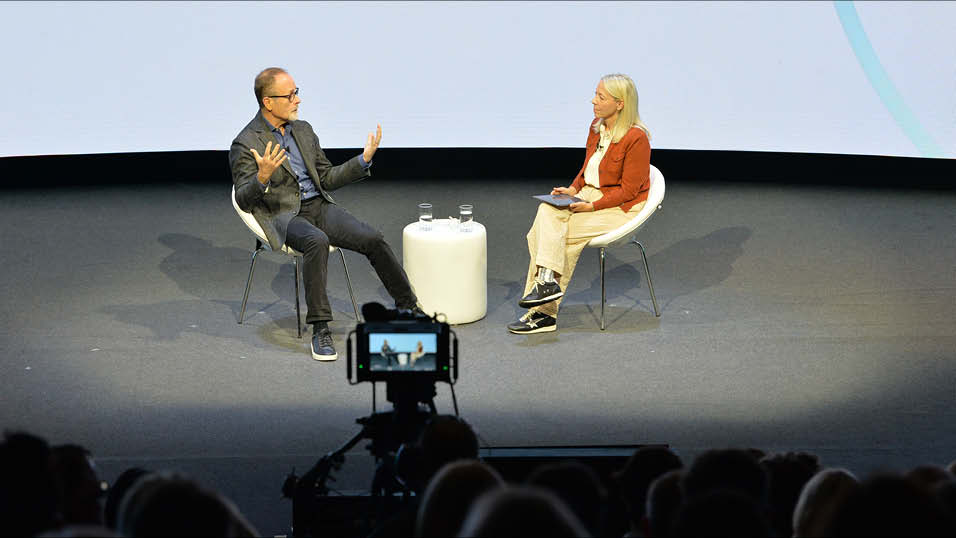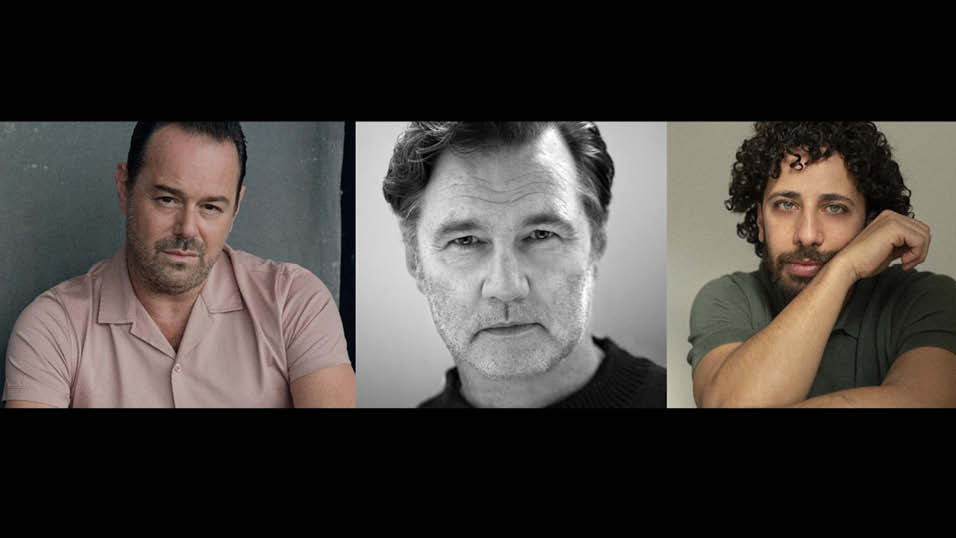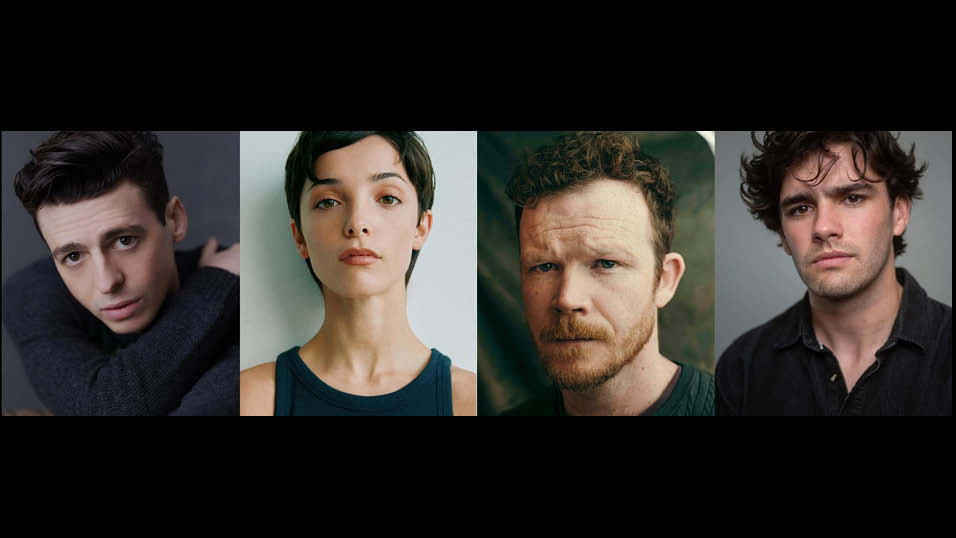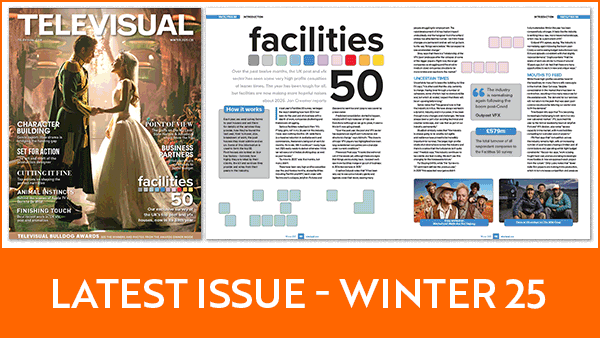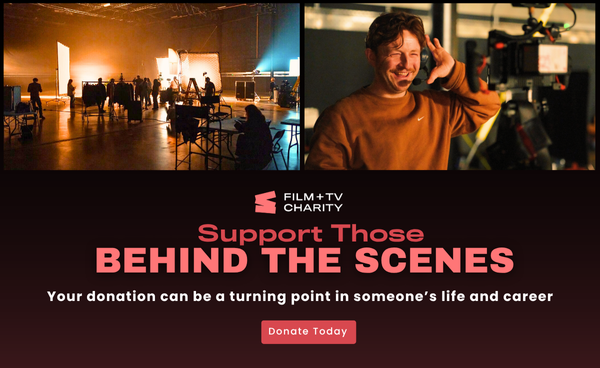Day two of the RTS’ bi-annual Cambridge Convention heard from the PSBs, news chiefs and senior TV executives, continuing a focus on reaching audiences on different platforms and how traditional media, and long-form, can survive. Pippa Considine reports.
We still need creativity to fuel global hits
The second day kicked off with John Landgraf, chairman of Disney-owned studio FX, in conversation with Jane Featherstone, co-founder of Sister.
He set out the challenge for Disney as a traditional media company, increasingly looking for global hits. Landgraf’s brief from Disney is to keep them coming: FX credits include The Bear, and his team is behind shows based on international IP – Shōgun and Aliens.
“The entire economic structure of TV has changed,” said Landgraf.
“Very large trillion-dollar companies are in the business of exploiting attention, not creating culture.
And creativity comes in different shapes. “If you’re going to compete on volume with 100 million creators, you’re going to lose…. There’s still an appetite for long form storytelling.”
He felt that consolidation was inevitable, with streamers needing to consolidate to reach around 300m subscribers.
Where AI can’t perform is with originality. “AI has to feed on human creativity,” he said.
Despite immediate demands, he insisted that the key was to think about the long term. “We have to invest the time and energy in making things that can endure.”
News: the frontline of platform agnosticism
David Rhodes – executive Chairman Sky News Group observed that there’s a been a shift of audience trust – from the broadcast brand to personalities. Sophie Ridge and Wilfred Frost have been brought in this year to host Sky News Breakfast. “We are thinking they will confer something on us,” says Rhodes.
Deborah Turness – ceo BBC News and Current Affairs underscored that news is a growth story. The BBC News app is now the number one news app in the UK. Globally, BBC news reaches half a billion and is aiming for one billion.
The BBC is taking its trusted news provision and playing it across platforms, while listening to its audience through its research tool Your Voice. Transparency – showing how it’s done, why it should be trusted – comes through BBC Verify.
And with news on social platforms “the feedback loop is much faster,” says Rhodes. The audience will tell you what it thinks and feels straight away.
Rachel, Corp, ceo ITN talked about being “stretched more than ever before” and innovating to reach audiences wherever they are, story-first.
The BBC now reaches almost three million under 25s younger audiences and using a different screen language. “You need to have a user experience that’s aligned with how they’re consuming off our platforms,” said Turness. While the BBC is building relationships with social media platforms, “we can bring them back to our own platforms to deepen that relationship.”
Corp described conversations with various platforms as inconsistent, some more helpful than others. While Rhodes underlined the importance of the next transitions, including how keyword search is being changed to semantic search.
When asked about traditional audiences and formats, Turness said that News at 1, 6 and 10 are “massive on iPlayer.”
The economic reality for newsrooms is that they are having to merge broadcast and social production operations. Rhodes added that live is important for Sky News and Corp said that live allows for alerts that bring audiences in.
Vadera calls for AI content exchange
In her first public appointment since her new appointment, Baroness Shriti Vadera co-chair Creative Industries Council called for the industry to up its attempts to cohere and talk value, helping to attract funding and government support.
She placed her position firmly against any government initiatives to allow the free scraping of content for AI. “It’s not just about fairness,” she said. “It’s about the economic argument…We need to have an understanding of the value that we can get out of content that is essential and needed for AI Large Language Models.”
“The government needs to unambiguously protect the value of content and copyright… It is not just essential to creators; it is economically the correct thing to do.”
She suggested the UK media companies should look at creating their own AI initiatives, pointing out that the BBC has over 100 years of content that it could mine.
Cross-industry, she posited a creative content exchange – a single platform that could house safely protected content, in particular of small creators, where AI can come in and license.
PSBS: regulation, consolidation, tax credits, C4 in-house production
Broadcaster Amol Rajan hosted a panel of PSBS, which first listened to Ofcom’s Cristina Nicoletti Squires Group Director for Broadcasting and Media, who said that there would be a call for evidence coming up in November. This will be looking at arguments around reforming the licensing network and a fresh look at advertising regulations, “to see where current rules need updating or stripping out, given the big difference between linear and online.”
The panel consisted of Jonathan Allan, interim ceo Channel 4, Tim Davie, director general BBC, Carolyn McCall ceo ITV and Sarah Rose President of 5, UK regional lead, Paramount.
They all agreed that action was needed from government and Ofcom on regulation.
But on the subject of consolidation the response was that the different business models made this an impractical proposition. And that the audience was lucky to have the plurality of choice.
McCall emphasised that whilst PSBs are encouraged to put their content on different platforms, it is “completely uneconomic for PSBS to be on some platforms.”
Channel 4 has made presence on YouTube in particular a big priority. “We think we can make incremental money there,” said Allan.
The PSBs would unsurprisingly like social media platforms to be obliged by regulators or legal framework to give PSB content prominence. “Commercially, they probably shouldn’t” conceded Allan. “That’s why we need regulation.”
McCall described the extension of tax credits to productions between £1m and £3m as “a no brainer” and would also like tax credits for regional news. While Rose wanted it to extend to even lower budget.
Rose added a call not to lose sight of investing and growing small indie suppliers around the country.
Allan sought to reassure the indie community that while diversification is needed to keep Channel 4 afloat, “in-house production will only ever be a very small proportion of our total production, we will still spend vastly more with indies.” The end game, he said, was to make more money from its own IP which could go back into the indie sector. “It’s not a zero-sum game.”
Asked if he would like to transition from acting ceo of Channel 4 to take up the position on a permanent basis, he didn’t miss a beat in answering yes.
image credit: Richard Kendal/RTS
Jon Creamer
Share this story




